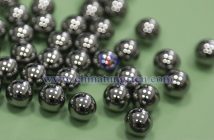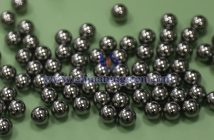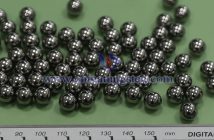Tungsten carbide balls are extensively utilized in bearing manufacturing for high-precision, high-wear, and heavy-load conditions across industries such as aerospace, wind power, automotive, petrochemical, medical, and marine engineering.
I. Characteristics of Tungsten Carbide Balls
Tungsten carbide balls are primarily composed of tungsten carbide (WC) and metal binders such as cobalt (Co), offering the following characteristics:
1. High Hardness: With hardness approaching that of diamond, they effectively resist wear and deformation.
2. High Wear Resistance: Their surfaces resist wear under high-speed rotation and heavy loads, significantly extending bearing lifespan.
3. Corrosion Resistance: They exhibit strong resistance to acids, alkalis, and various chemicals, suitable for harsh environments.
4. High Strength: High compressive strength enables them to withstand substantial mechanical loads, ideal for heavy machinery.
5. Dimensional Stability: A low thermal expansion coefficient and high dimensional accuracy meet the demands of high-precision bearings.
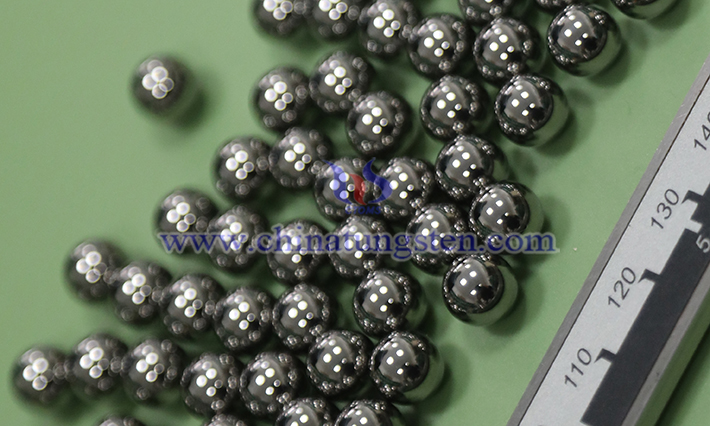
II. Advantages of Tungsten Carbide Balls in Bearings
1. Extended Lifespan: The high hardness and wear resistance of tungsten carbide balls significantly enhance bearing longevity, particularly in high-speed, high-load scenarios.
2. Improved Precision: High dimensional stability and surface finish ensure smooth bearing operation, reducing vibration and noise.
3. Adaptability to Harsh Environments: Corrosion resistance and high-temperature stability make them suitable for use in chemical and marine environments.
4. Reduced Maintenance Costs: Low wear rates decrease the frequency of bearing replacements, lowering equipment maintenance costs.
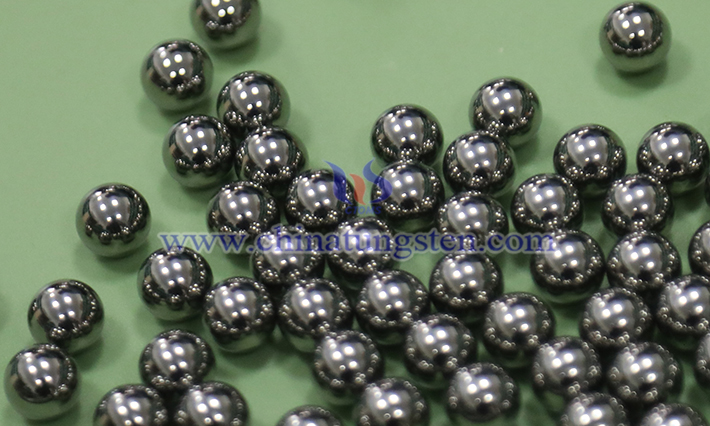
III. Main Application Areas of Tungsten Carbide Ball Bearings
1. Aerospace: In aircraft engines and spacecraft, tungsten carbide balls are used in high-speed ball bearings to withstand high temperatures, high speeds, and extreme loads, ensuring reliable operation.
2. Wind Power: Main shaft bearings in wind turbines utilize tungsten carbide balls for their high strength and wear resistance, ensuring stable long-term operation in complex wind farm environments.
3. Precision Machine Tools: In CNC machines and machining centers, tungsten carbide ball bearings provide high precision and low friction, ensuring machining quality and equipment stability.
4. Automotive Industry: Used in electric vehicle motors and traditional vehicle transmission bearings, they meet high-speed rotation and high-load demands, enhancing vehicle performance.
5. Petrochemical Industry: In bearings for pumps and valves, the corrosion resistance of tungsten carbide balls enables long-term operation in acidic and alkaline environments.
6. Medical Equipment: In precision instruments like CT scanners and MRI machines, tungsten carbide ball bearings provide high precision and low-noise operation, ensuring equipment reliability.
7. Marine Engineering: In offshore drilling platforms and marine equipment, tungsten carbide ball bearings resist seawater corrosion, adapting to high-humidity and salty environments.

